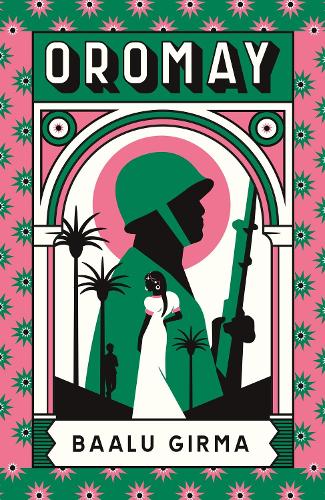
Oromay
(Hardback)
Available Formats
Publishing Details
Oromay
By (Author) Baalu Girma
Translated by David DeGusta
Translated by Mesfin Felleke Yirgu
Quercus Publishing
MacLehose Press
8th April 2025
16th January 2025
United Kingdom
Classifications
General
Fiction
Fiction in translation
Narrative theme: coming of age
Individual film directors, film-makers
892.873
Physical Properties
Hardback
400
Width 144mm, Height 218mm, Spine 38mm
491g
Description
Ethiopia, 1982: After a decade of conflict, the government is determined to quash the Eritrean insurgency once and for all. As head of propaganda, it's Tsegaye's job to keep the people onside.
When the Red Star Campaign lands him in Asmara, Tsegaye is swept up in the city's nightlife, the bars and coffeehouses buzzing with spies and government agents. But even as Tsegaye begins to fall in love with Asmara and with bold, dazzling, enigmatic Fiammetta his misgivings about the campaign grow, and soon his loyalties will be tested to their limit. Tsegaye is confronted with the horror of war when the army attacks the insurgents' mountain stronghold, and encounters betrayals that shake his faith in both the regime and human nature. A masterpiece of Ethiopian literature, Oromay is a thrilling political satire and a turbulent tale of love and war. It became an instant sensation when first published in 1983 and was quickly banned. Baalu Girma vanished in 1984, most likely kidnapped and murdered by the same regime in retaliation for this novel. Translated from Amharic by David DeGusta and Mesfin Felleke YirguReviews
Ethiopia has spent a hundred years composing extraordinary novels in Amharic, yet virtually none have been translated into English. David DeGusta and Mesfin Felleke Yirgu have provided the world a service by translating Oromay by Baalu Girma, one of the most important novels in Amharic -- Professor Wendy Belcher
A novel widely believed to have cost its author his life, a prayer against war, oppression and the erosion of our humanity. David DeGusta and Mesfin Felleke Yirgu have done an outstanding job translating Oromay, giving the world access to one of the most important and enduring works of literature in Ethiopia -- Djamila Ibrahim
A startling, intimate and gripping saga of war-time Ethiopia turned topsy-turvy. In his brave dissection of rampaging power and evasive language, Girma recalls George Orwell and Aldous Huxley -- Okey Ndibe, author of Foreign Gods, Inc.
Reading Oromay sent me back to when I first watched Casablanca. It has the same surefire set of ingredients that draws you into the story and makes you empathise with its characters. Eritrea in the 1980s, war, junta, coffee shops where local spies and CIA agents drink coffee, a love story . . . A gripping novel that has 'documentary' flavour -- Andrey Kurkov
Ethiopia has spent a hundred years composing extraordinary novels in Amharic, yet virtually none have been translated into English. David DeGusta and Mesfin Felleke Yirgu have provided the world a service by translating Oromay by Baalu Girma, one of the most important novels in Amharic. Banned within days of publication, this thinly veiled roman a clef by a former propagandist about Ethiopian government repression in Eritrea details the roguish main character's increasing disillusionment as he witnesses the bureaucracy of occupation and the horrors of war. In an admirably natural English, this lively translation captures the humor and verve of the original. The translators revel in all the strengths of this dialog-driven war journalism story and its sharp social observations about who sacrifices the most humanity, oppressor or oppressed -- Dr Wendy Belcher
Author Bio
Born in rural Ethiopia in 1939, BAALU GIRMA graduated from Addis Ababa University and later studied journalism in the United States. He rose to prominence in Ethiopia in the 1960s and 70s as both a journalist and novelist, eventually becoming a top official in the Ministry of Information under the Derg dictatorship. He wrote six popular and critically acclaimed Amharic-language novels: Beyond the Horizon, The Bell of Conscience, The Call of the Red Star, Haddis, The Author and his final novel, Oromay. His candid portrayal of the regime in Oromay caused a sensation and the government immediately banned the novel and fired Girma. Six months later, on Valentine's Day 1984, he vanished under suspicious circumstances. No definitive evidence has emerged as to Girma's fate, but the consensus is that he was murdered by the regime in retaliation for Oromay, which has since become one of Ethiopia's most famous and best-loved novels. It is partly for his courage in renouncing the hated Derg that Baalu Girma and Oromay hold such an honoured place in Ethiopian cultural history.
